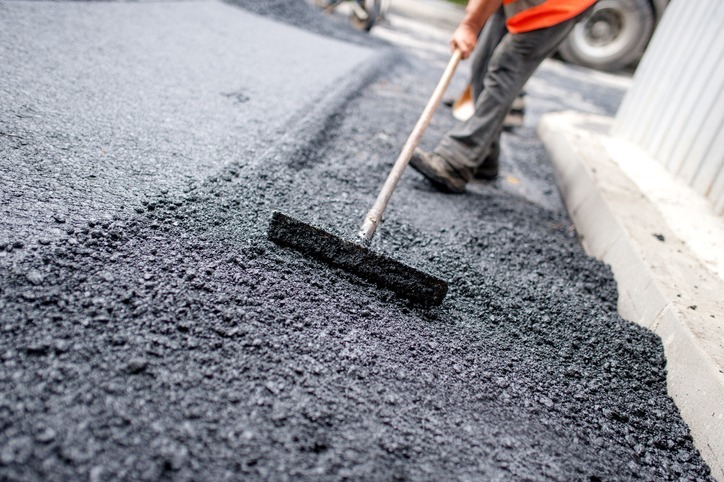When asphalt is mixed with aggregate, it becomes an accurate pavement material to be used in road construction designated through paving companies. However, the aggregate used in asphalt can also add other features that many people will find useful. For example, asphalt is composed of three different types of aggregate depending on where it was produced: natural materials such as sand or gravel, recycled materials such as coal fly ash or slag, and artificial or synthetic materials such as Portland cement or plastic granules. Claremont Asphalt provides professional asphalt services for driveways, pothole repairs, carparks, and resurfacing.
1. Hot Mix Asphalt
Hot mix asphalt (HMA) is a mixture of hot, compacted, loose aggregate in asphalt. These aggregates and asphalt are heated up together to create a homogeneous mixture that spreads easily onto the pavement. Because of the high temperature that should be maintained at the plant to achieve good quality and consistency, HMA plants are generally located relatively close to the road construction sites. This means that HMA trucks can easily access areas requiring more repairs.
HMA is commonly used in road construction. Besides the fact that it is easier to apply, HMA is relatively cheaper than other types of asphalt. HMA has many advantages over different types of asphalt, such as:
- Relatively low initial cost.
- Lower life-cycle cost. Potholes are less likely to appear on an HMA surface because more aggregate particles are in contact with the asphalt, thus creating a stronger bond between the asphalt and the aggregate.
- It is easier to construct and maintain HMA roads. Compared to other types of asphalt, HMA requires less maintenance because it has fewer pores and it requires fewer repairs.
2. MC Cold Mix
This is a mixture of aggregates and asphalt, only that the mixture isn’t heated. An MC plant can be stationary or mobile, but the mixing and spreading processes are almost similar in both cases.
MC compounds have several advantages over HMA, such as:
- MC is less expensive than HMA because it requires fewer aggregate materials and asphalt. This small amount of aggregate material requires a smaller storage area than other types of asphalt.
- MC is less susceptible to potholes than the latter type because the aggregates are smaller. When a pothole begins to form, it is easier for repairs to be done.
- MC is easily repairable and can quickly be spread onto a damaged surface. Compared to HMA, MC can bond better with hot asphalt materials and therefore doesn’t need much time before being usable again.
3. Porous Asphalt
Porous asphalt comprises the same materials as hot mix asphalt (HMA), only that the recycled materials have already been broken down into smaller particles. The smaller the particles are to make up the pores, the better they will be able to lock with other materials on the pavement. This is why porous asphalt can be a better material for paving roads than HMA because it creates a stronger bond with other materials.
4. Dense-Graded Mixes
Dense-graded mixes consist of broken rock and commercial asphalt (HMA), and are used on roads with the same conditions as HMA. The aggregate used in these mixes is normally broken rock (which can be obtained commercially or mined by the contractor) because they have smaller particles.
5. Aggregate Binders
Aggregate binders are mixtures of bitumen, portland cement, hot asphalt and aggregates that form an asphalt binder. These binders are generally used for repairs of roads. These asphalt binders are also used in the construction of sidewalks, parking lots, and driveways. Some asphalt binders can be mixed with other binders to form an even harder and lighter material that won’t sink into the ground when water is poured onto it.
6. Warm Mix Asphalt
Warm mix asphalt (WMA) is another type of asphalt. WMA is generally made of a mixture of hot aggregate, asphalt and portland cement. However, unlike MC and HMA, the aggregate used in WMA comes from a mine instead of being commercially obtained. This type of asphalt has fewer air bubbles than MC and can gradually harden because it is slower to dry up than HMA (which requires heat).
Conclusion
Asphalt is a durable material that can be used in a variety of applications, from highways to playgrounds. The types of asphalt described above are only the most common and can be installed by professional paving companies. Engineered subgrade systems and precast concrete pavement products from paving companies are other options for pavement materials.

